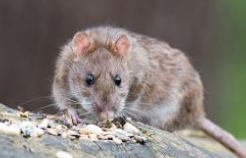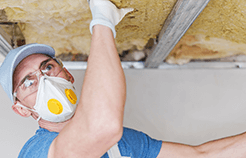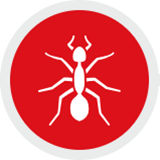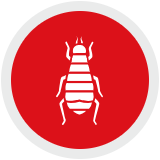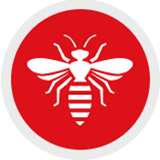A growing number of homeowners are switching to eco-friendly pest control methods that are safer, smarter, and more sustainable. In fact, according to Environmental Magazine, 92% of homeowners now prefer environmentally conscious methods to protect their homes. This shift comes as more people recognize the downsides of traditional pest control, which often relies on harsh synthetic chemicals that can linger in the:
- Air
- Water
- Soil
These products may eliminate pests, but they can pose long-term risks to humans, pets, and beneficial insects, such as bees. Experts now recommend green pest control techniques that work in harmony with nature rather than against it.
Whether you’re fighting ants in the kitchen or mosquitoes in the backyard, there are natural, effective, and science-backed ways to manage pests without compromising your family’s well-being. Keep reading to learn more.
Prevention Is the First Line of Defense
Professionals agree: the most effective pest control starts before pests appear. Here are some key prevention strategies to consider:
- Seal entry points: Use caulk or weather stripping to close cracks and gaps around doors, windows, pipes, and foundations
- Remove standing water: Empty birdbaths, plant saucers, and gutters regularly, fix leaks, and ventilate damp areas
- Store food securely: Keep food in airtight containers, wipe up crumbs, and avoid leaving pet food out overnight
- Maintain proper trash management: Use sealed trash bins and take out garbage regularly to avoid attracting pests
- Declutter yards: Remove leaf litter, wood piles, and tall grass where pests can hide or nest
These steps not only reduce the need for pesticides but are also essential to any environmentally safe pest control strategy.
Natural Pest Control Using Household Items
Some of the best organic pest solutions come from ingredients you may already have in your pantry. This includes:
- Vinegar and water: A simple spray can help deter ants, fruit flies, and spiders
- Baking soda and sugar: Mix and place in shallow dishes to attract and kill roaches
- Clove oil: Contains eugenol, which repels many insects when mixed with water and used as a spray
Try Diatomaceous Earth
This fine, natural powder is harmless to humans and pets, but deadly to crawling insects such as cockroaches, ants, and bed bugs. Lightly dust it in cracks, behind appliances, or under sinks.
Essential Oil Sprays
Some scents naturally repel bugs. You can mix any of the following oils with water for an excellent spray against ants, spiders, flies, and mosquitoes:
- Peppermint
- Citronella
- Tea tree
- Lavender
Spray around baseboards, windows, and other entry points, but be cautious when using essential oils around pets. By combining these simple strategies with smart outdoor habits, you can keep your home healthier and pest-free in a natural way.
Use Your Garden to Support Natural Pest Control
Your outdoor space can do more than look good; it can help keep pests away. By making a few smart choices, you can attract helpful bugs and animals that naturally reduce pest problems. Experts often recommend these techniques.
Encourage Natural Predators
Support insects and animals that feed on common pests such as:
- Ladybugs and lacewings that eat soft-bodied insects
- Birds and bats, which reduce mosquito, beetle, and moth populations
Choose Pest-Repelling Plants
Certain plants naturally deter pests while attracting helpful species. Consider the following:
- Marigolds, basil, and garlic to discourage insects
- Dill, fennel, and alyssum to feed beneficial insects like hoverflies and parasitic wasps
Avoid Broad-Spectrum Pesticides
Chemical sprays can wipe out helpful predators along with pests. Opting for organic or targeted methods allows beneficial species to do their job and stop pests from reaching your home.
Create a Pest-Resistant Habitat
- Use mulch and native ground covers to shelter beneficial insects
- Compost regularly to improve soil health and support pest-fighting microbes
Together, these outdoor strategies complement your indoor efforts, forming a sustainable and long-term approach to pest control.
Physical Barriers and Traps
This is particularly useful in indoor or sensitive spaces, such as nurseries, pet zones, kitchens, or bedrooms, where avoiding chemical exposure is a priority. These options are chemical-free and easy to use:
- Sticky traps are effective for catching flies, spiders, and roaches without introducing toxins
- Mosquito netting offers reliable protection for beds, strollers, and outdoor seating, keeping biting insects out while allowing airflow
- Door sweeps and window screens help seal gaps to keep insects outside
- Mesh covers for vents and drains can block pests like flies, mosquitoes, cockroaches, and even rodents from entering your home
Integrated Pest Management (IPM)
Professionals often rely on Integrated Pest Management (IPM). This multi-step approach is focused on long-term prevention and minimal chemical use. It follows four basic principles:
- Monitor: Check regularly for signs of pests, such as droppings, damage, or live insects
- Prevent: Keep your space clean, sealed, and remove anything that attracts pests
- Identify: Ensure you know the type of pest you’re dealing with so you can treat it effectively
- Control: Start with the least harmful option, such as traps or natural repellents, and only move to stronger methods if necessary
When to Call a Professional
Even the most confident DIYer may need expert help. This is especially true when dealing with challenging or persistent infestations involving:
- Termites
- Bed bugs
- Large rodent populations
Fortunately, many pest control companies now offer environmentally safe pest control options. When you contact a professional, be sure to ask whether they:
- Use plant-based or reduced-risk pesticides
- Hold eco-certifications or follow green business practices
- Employ technicians trained in Integrated Pest Management (IPM)
- Provide exclusion services that seal entry points without chemicals
Eco-Friendly Pest Control Methods Are Smart and Sustainable
Using eco-friendly pest control methods doesn’t mean compromising on results. Whether you’re tackling pests on your own or partnering with a professional, staying informed about safe pest management choices helps you protect what matters most.
Eastside Exterminators has been family-owned and serving the Seattle area since 1969. As part of Anticimex, we offer proactive, eco-friendly solutions powered by SMART technology, with digital monitoring that helps stop pests before they become a problem. Our licensed technicians are highly trained, and we’re proud members of trusted industry organizations like NWCOA, USPMPA, and the BBB.
Contact us today to discuss your needs.

 (425) 318-7912
(425) 318-7912
 MY ACCOUNT
MY ACCOUNT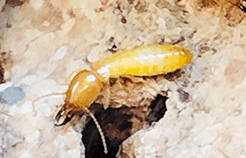
 425-318-7912
425-318-7912